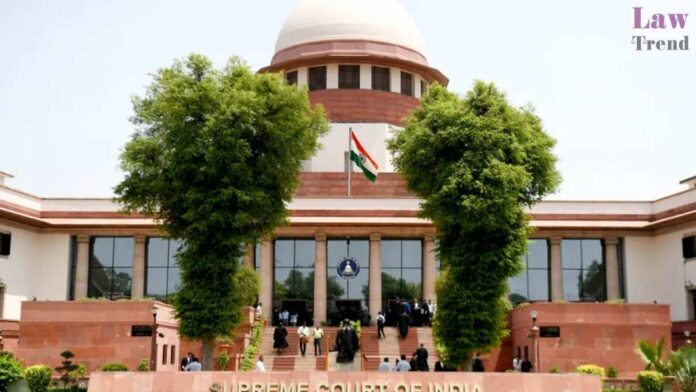New Delhi: The Supreme Court Advocates-on-Record Association (SCAORA) has formally requested the Chief Justice of India, Justice Bhushan Ramkrishna Gavai, to issue comprehensive guidelines prohibiting advocates from engaging in videography and creating social media content within the Supreme Court premises. The letter, dated July 25, 2025, highlights concerns over professional misconduct, prohibited solicitation, and potential security breaches.
The move comes in response to a representation received by SCAORA from numerous members of the Bar, who raised alarms about a “rising trend of advocates creating video reels, engaging in videography, and producing related content within the Supreme Court premises including in High Security Zones.”
Key Concerns Raised by SCAORA
In the letter penned by SCAORA President Mr. Vipin Nair and Hony. Secretary Mr. Nikhil Jain, the association detailed several grave concerns stemming from this practice:
- Prohibited Solicitation: Many videos, though sometimes carrying disclaimers, are used to promote the advocates by displaying their contact details or conveying messages that amount to “impermissible solicitation,” which is expressly forbidden by the Bar Council of India Rules.
- Erosion of Decorum and Public Trust: Such activities are seen to “diminish the dignity and decorum of the legal profession” and risk “eroding public trust in the legal system.” The letter notes that the involvement of Advocates-on-Record is particularly serious, given their “heightened responsibility to uphold professional standards.”
- Misrepresentation of Judicial Proceedings: The incorporation of “courtroom clippings or snippets from live-streamed proceedings” into these videos is a major point of contention. SCAORA argues that this can “misrepresent judicial proceedings, undermine the sanctity of the Court, and spread misinformation.”
- Interference with Justice: The association warns that these activities can interfere with the judicial process by fostering a “trial by media” and distorting the public’s perception of court proceedings through sensationalism or selective presentation.
- Security Risks: Unauthorized videography within high-security zones of the court is flagged as a serious issue that could breach “stringent security protocols established for the safety and integrity of the Court.”
- Judicial Apprehensions: The letter also refers to instances where Supreme Court judges have themselves “expressed apprehensions about misuse of short video clips especially those taken out of context from live streams,” which can lead to misinformation and undermine judicial authority.
Requested Actions and Guidelines
Based on these concerns, SCAORA has respectfully urged the Chief Justice of India’s office to take the following actions:
- Issue Clear Guidelines: To formulate and release a “clear and comprehensive guideline prohibiting videography, photography, and any form of content creation within the Supreme Court premises,” except where specifically permitted by official protocols.
- Reiterate Prohibition on Solicitation: To re-emphasize the ban on direct or indirect solicitation by legal professionals on social media or any other public platform.
- Prohibit Sharing of Court Footage: To forbid the uploading or sharing of any court proceedings, whether recorded or from live streams, outside the approved channels of the Supreme Court.
- Enforce Disciplinary Action: To ensure that violations are met with disciplinary action “commensurate with the seriousness of the breach,” with a particular focus on the accountability of Advocates-on-Record.
The letter concludes by expressing confidence that a timely intervention from the Chief Justice will be significant in “preserving the integrity of the Supreme Court, reinforcing ethical standards, and preventing solicitation and security threats within the legal community.” The representation was also forwarded to the Bar Council of India and the Bar Council of Delhi.




